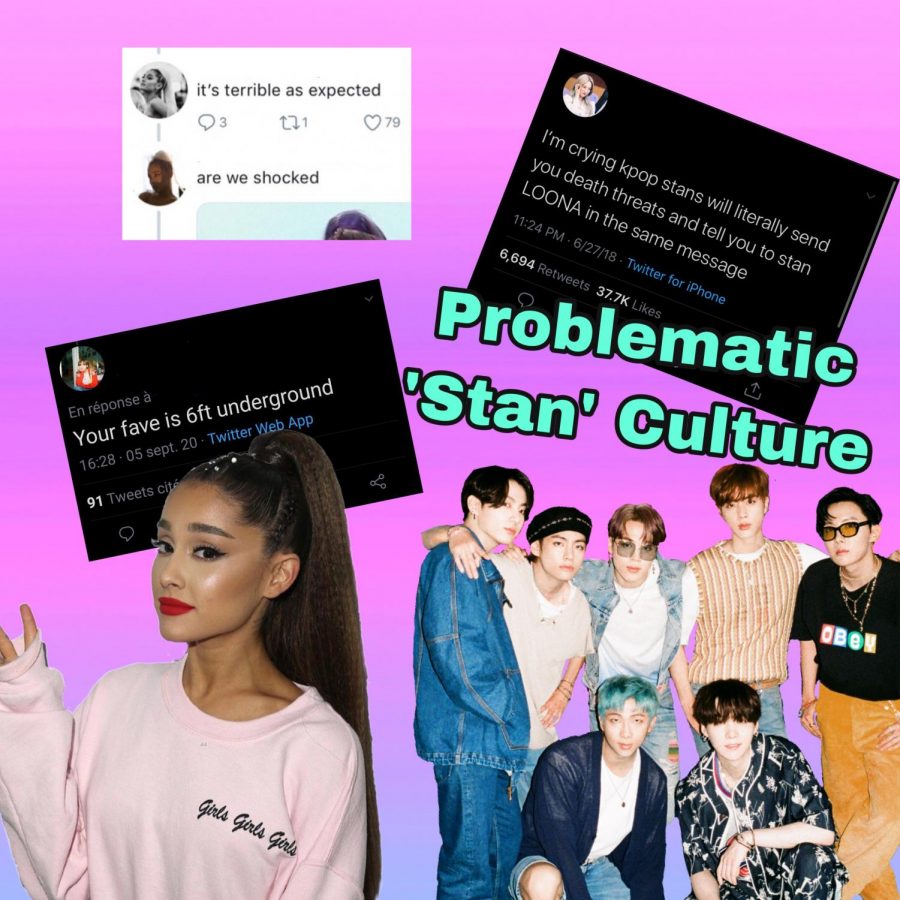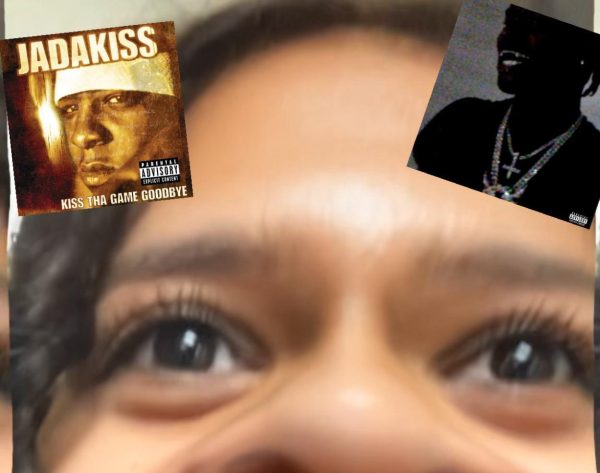Problematic ‘Stan’ Culture
Throughout the years, as celebrities have grown more prominent and influential in society, so has the culture surrounding them. This culture usually features a type of fan named a ‘stan’. These ‘stans’ are incredibly devoted and enthusiastic to the celebrity they admire. Consequently, this might make them look slightly obsessed to many.
Stans aren’t necessarily bad as they are simply admiring their favorite celebrities. With this in mind, why is stan culture so problematic then?
Two students commented their differing opinions on stan culture:
“I think stans are a nuisance and need to be stopped somehow. They are hypersensitive and bring up old stuff to ruin people’s lives, regardless if the person has left their old ways behind. Some of these stands even dox people when said person doesn’t agree with them over both controversial and non-controversial matters.”
“Stan culture has changed over time. It used to go from stalker to super fan. I think that stan culture should be appreciated by creators and that its not problematic. The people doxing creators aren’t stans, just stalkers.”
Toxicity
Devotion and enthusiasm may be positive, but in excess it becomes a problem. An excess of devotion and enthusiasm to a specific celebrity can lead to toxic behaviors. Critics to these celebrities might find themselves relentlessly attacked by furious and aggressive stans. These types of fans have a reputation of being overly-aggressive and fierce, willing to berate anyone who dares comment against their idol. These fans also target celebrities that pose a threat to their favorites. An example of this is the ongoing conflict within the K-Pop fan community, which is notorious for having an inflated amount of toxic stans. This is partially due to the large amount of people within the community. Fan wars are extremely common in this community as fans of one celebrity will attack and argue with the fans of another.
This environment promotes toxicity as other more casual or amiable fans might jump into arguments due to their motivation to defend their idols.
Idolization
Some fans are unwilling to see their favorite celebrity in a negative light, therefore bringing up a multitude of problems. Stans are barriers for celebrities, especially those who have previously engaged in problematic behavior. They defend their idols with fervor and extreme devotion, unable to see any negative traits in them, therefore elevating them up onto a pedestal. Many of these types fans are willing to worship their idols through anything. Even if their favorite celebrity turns out to be a horrible person, many stans will stick with them.
Obsession
Stans can come off as overly obsessed and devoted to their favorite celebrity. This in itself is a problem as some of them will dote endlessly over a person that they do not truly know or will ever know. Many stans will throw fits of jealousy if their favorite celebrities ever engage in romantic relationships. Some of them even go as far to threatening their idol’s partners. Stans will declare the idols as being ‘theirs’ and fantasize endlessly about them. Stan culture promotes this borderline creepy and aggressive behavior towards celebrities and their potential romantic partners.
It isn’t always problematic
Stan culture and stands aren’t all bad. Fan communities, though often incredibly toxic and problematic, can also be surprisingly pleasant. Fan communities are amazing places to involve and talk to people who share the same interests as you. It gives people a sense of belonging and happiness as they engage and become friends with others. Many stans are also great people who just really like a specific celebrity without any negative behaviors involved.
Though many people have negative perceptions on stans and stan culture, sometimes rightfully so, there are always a multitude of bad apples in every community. The reason why it’s so prominent in fan communities is due to the grand magnitude of people involved.
Though problematic and toxic overall, fan communities can also be great areas to commune with others.










